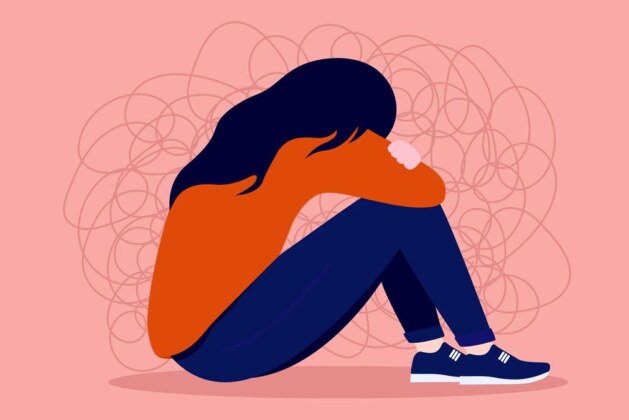Depression can feel like an invisible burden, one that not only affects the person going through it but also those around them. For many, it’s not immediately obvious that they’re suffering, and often, the people closest to them may not recognize the signs either. This lack of understanding can lead to confusion, frustration, and feelings of isolation for both the person with depression and their loved ones.
In this article, we’ll dive deep into what depression really is, how to recognize it, and how to cope with it—whether you are the one suffering or you’re trying to support someone who is. By raising awareness and providing helpful strategies, we hope to make the path a little clearer and a little easier for those navigating this challenging journey.
Table of Contents
Understanding Depression: More Than Just Feeling Sad
Depression isn’t just a temporary feeling of sadness. It’s a mental health condition that affects your thoughts, feelings, and physical well-being. Symptoms of depression can vary from person to person, but common signs include:
- Persistent sadness or emptiness
- Loss of interest in activities once enjoyed
- Fatigue or lack of energy
- Difficulty concentrating or making decisions
- Changes in sleep and appetite patterns
- Feelings of hopelessness or worthlessness
While many people might experience these symptoms from time to time, depression is marked by these feelings lasting for weeks or even months. If you’re experiencing several of these symptoms and they’re interfering with your day-to-day life, it may be time to seek help.
For loved ones, depression can sometimes appear as irritability, withdrawal, or changes in behavior. A person suffering from depression may not even realize that they’re in the middle of it, or they may dismiss their feelings as just “a phase” or “something they should be able to snap out of.”
Why Recognizing Depression Matters
Sometimes, the hardest part of dealing with depression is realizing that something isn’t right. People often dismiss their symptoms as stress, exhaustion, or temporary mood swings. They might push through, hoping that things will improve on their own, but depression doesn’t just go away without treatment.
For those who are close to someone with depression, it can be even harder to understand what’s going on. A person with depression may not always show outward signs of distress, and loved ones may feel helpless, confused, or frustrated. It’s crucial to acknowledge that depression is real and not a sign of weakness or something that can be easily fixed.
How to Cope with Depression: For Those Who Are Suffering
If you’re reading this and feeling like you’re alone in your struggle, know that you’re not. Depression can make everything feel like an uphill battle, but there are steps you can take to make it more manageable.
1. Recognize that You’re Not Weak
One of the hardest things about depression is the shame that often comes with it. You might feel like you should just “snap out of it” or that you’re failing at life because you’re not happy. But depression isn’t something you can control on your own, and asking for help is a sign of strength, not weakness.
2. Seek Professional Help
Talking to a therapist or counselor can make a huge difference. Cognitive Behavioral Therapy (CBT) has been shown to help many people with depression by helping them reframe negative thinking patterns. If necessary, a doctor can prescribe medications like antidepressants to help balance the chemicals in your brain. There’s no shame in using medication as part of your healing process—it can be a vital tool.
3. Take It One Day at a Time
Depression can make even the simplest tasks feel like monumental challenges. It’s important to be kind to yourself and take small steps every day. Focus on getting through the day—whether it’s getting out of bed, taking a shower, or eating a meal. Celebrate those small victories. They add up.
4. Stay Connected
It’s easy to withdraw from the people around you when you’re struggling, but isolation can make depression worse. Try to stay in touch with loved ones, even if it’s just through a text or short phone call. Let them know that you’re struggling, and ask for their support.
5. Practice Self-Compassion
Depression often comes with feelings of guilt and worthlessness. It’s crucial to remind yourself that you are not defined by your illness. Be gentle with yourself, and allow yourself to rest, recover, and heal at your own pace.
6. Create a Routine
Establishing a daily routine can help bring some structure to your day. Depression can disrupt your sleep and eating habits, so try to set regular times for meals, rest, and activity. Even if you don’t feel motivated, having a schedule can provide a sense of normalcy and control.
How Loved Ones Can Help a Person with Depression
If you’re supporting someone who is struggling with depression, it’s important to approach the situation with understanding, patience, and compassion. Here are a few ways to offer help:
1. Be There to Listen
Sometimes, the best way you can help is simply by listening. Let your loved one talk about what they’re feeling without interrupting or offering solutions unless they ask. Just being a safe space for them to express their emotions can mean the world.
2. Don’t Dismiss Their Feelings
It can be tempting to try to “fix” the situation, but depression isn’t something that can be easily solved with advice like, “Just think positive” or “It could be worse.” Instead, validate their feelings. Let them know that what they’re going through is real, and they don’t need to apologize for it.
3. Encourage Professional Help Gently
If your loved one isn’t seeing a professional, encourage them to do so in a gentle, non-judgmental way. You could offer to help them find a therapist or accompany them to an appointment. Let them know that seeking help is a sign of strength and self-care.
4. Offer Practical Help
Depression can make everyday tasks feel overwhelming. Offer to help with household chores, cooking meals, or running errands. Sometimes the smallest gestures can make a huge difference.
5. Set Boundaries for Your Own Well-being
Supporting someone with depression can be emotionally taxing. It’s important to take care of your own mental health too. Set boundaries when needed and seek your own support, whether through therapy, friends, or support groups.
Moving Forward: Hope for Recovery
While depression can feel like a never-ending struggle, there is hope. With the right support, treatment, and coping strategies, it is possible to manage symptoms and lead a fulfilling life. Remember, recovery doesn’t happen overnight, but each small step counts.
If you’re suffering, or if someone you love is, take comfort in knowing that you are not alone. Seek help, and be kind to yourself along the way. Whether you’re dealing with depression yourself or helping someone through it, understanding the illness and approaching it with patience and care is the first step toward healing.
Conclusion
Raising awareness about depression isn’t just about understanding the illness—it’s about making sure that those who are suffering know they’re not alone, and that those who love them know how to offer support. By fostering a compassionate, open dialogue about mental health, we can create a more understanding world for everyone who struggles in silence.
If you or someone you know is experiencing depression, please reach out for help. Healing is possible, and it starts with understanding, compassion, and taking the first step toward recovery.
Read More: Gratitude Journaling: The Secret to Mental Clarity and Emotional Healing You’ve Been Searching For





Your blog post was so thought-provoking. It’s rare to find content that challenges me to think deeply about important issues.
Fico impressionado com a fluidez da sua escrita e a clareza com que os pontos foram desenvolvidos ao longo do texto.